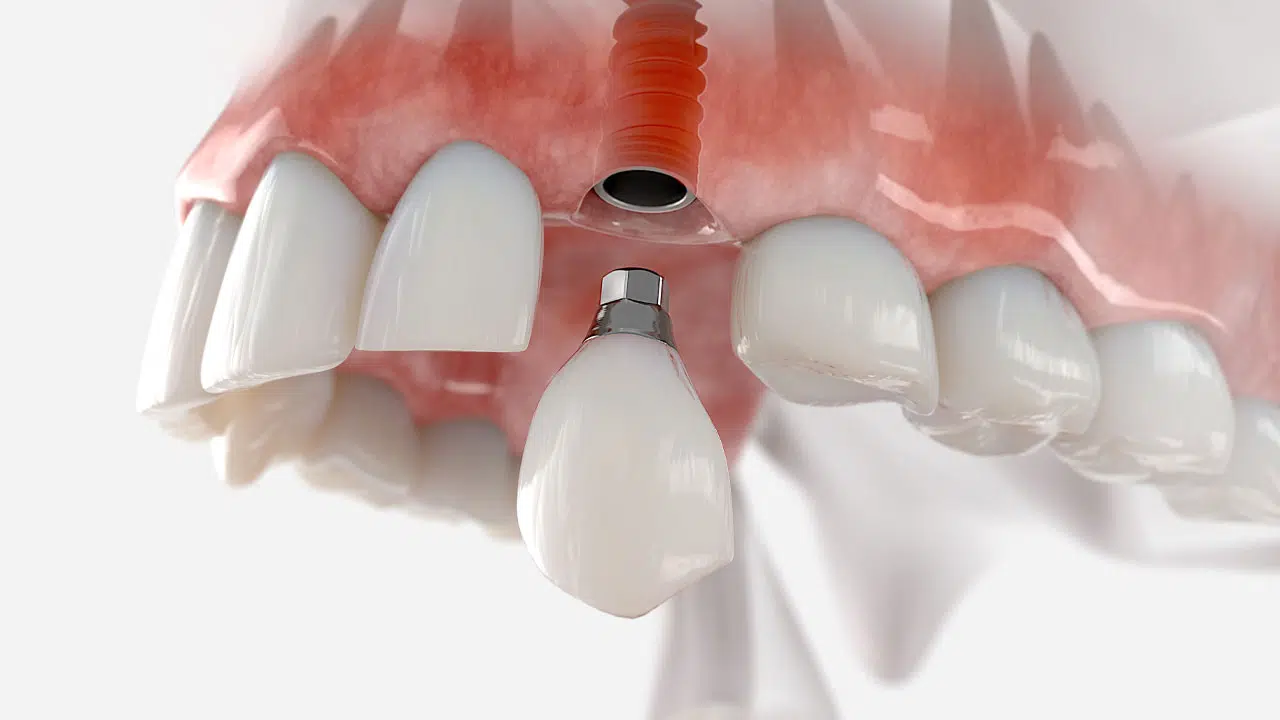
Dental professionals recognize dental implants as one of the best ways to restore your smile. But one of the best things about dental implants is what most patients fear most – they are embedded in your jaw.
Getting dental implants is a minor surgery, and due to modern dentistry technologies and techniques, the procedure causes minimal post-surgical discomfort.
Does Dental Implant Surgery Hurt?
Getting a dental implant may cause some mild trauma to your gums and jaw when the implant is placed. However, you should not feel any pain during the surgery because your dentist administers a local anesthetic.
The steps for the surgical phase of a dental implant at Valley Dental Care of Plainfield take about an hour and include:
- Numbing the site with a numbing gel before injecting local anesthesia.
- Making an incision in your jawbone using 3D guided technology. Your jawbone has no nerves, so you should not feel any pain when your dentist drills a space for the implant, but you may feel a little pressure.
- Placing the dental implant in your jawbone.
- Adding a healing cap to keep the dental implant safe while it fuses with your jawbone.
- Suturing the site closed.
What to Expect During Recovery
You can expect some tenderness at the wound site once the anesthesia wears off. Your dentist will recommend you take an over-the-counter pain reliever to alleviate your discomfort. Other aftercare instructions may include:
- Using a cold compress on your cheek to reduce swelling
- Sleeping with your head elevated
- Avoiding strenuous exercise
- Rinsing with a saline solution the day after surgery to fight off infection
- Not using a straw or spitting for the first 24 hours post-surgery
- Sticking to a liquid diet for the first 24-48 hours after surgery
How Long Does Recovery Take After Surgery?
It takes about 10 days to recover after dental implant surgery for most people. You will experience some mild bleeding at the surgery site and swelling of your cheeks, chin, and under your eyes. Your gum tissue will be tender and vulnerable, so avoid hot and hard foods. You may also experience minor bruising and jaw pain.
Most patients can fully resume their daily activities the day after dental implant surgery, and any pain typically subsides within 3-5 days. Swelling, jaw stiffness, and bruising dissipate within 7-10 days.
Your dentist should investigate any pain that lasts longer than two weeks.
Dental Implant Pain Months or Years After Surgery
Despite dental implant surgery having a success rate of 90-95% over 10 years, occasionally, complications can occur and may be a sign of implant failure. Common causes of dental implant pain months or years post-surgery:
- A loose implant: if the implant loosens during the healing process, it will have to be removed, cleaned, and reinserted.
- Implant failure: if your body rejects the implant, it will loosen and have to be removed. Peri-implantitis: an infection can occur if bacteria build up in the soft tissue surrounding the dental implant.
- Nerve damage: this occurs when the implant is placed too close to a nerve or the dentist’s drill touches a nerve.
Maintain Your Implant With Valley Dental Care of Plainfield
The best way to avoid dental pain after your surgery is to follow your dentist’s post-op instructions. You should also practice an excellent at-home oral hygiene routine and visit your dentist every six months for a professional hygiene cleaning and dental exam.
To schedule your check-up or a dental implant consultation, contact us at (815) 436-6800.